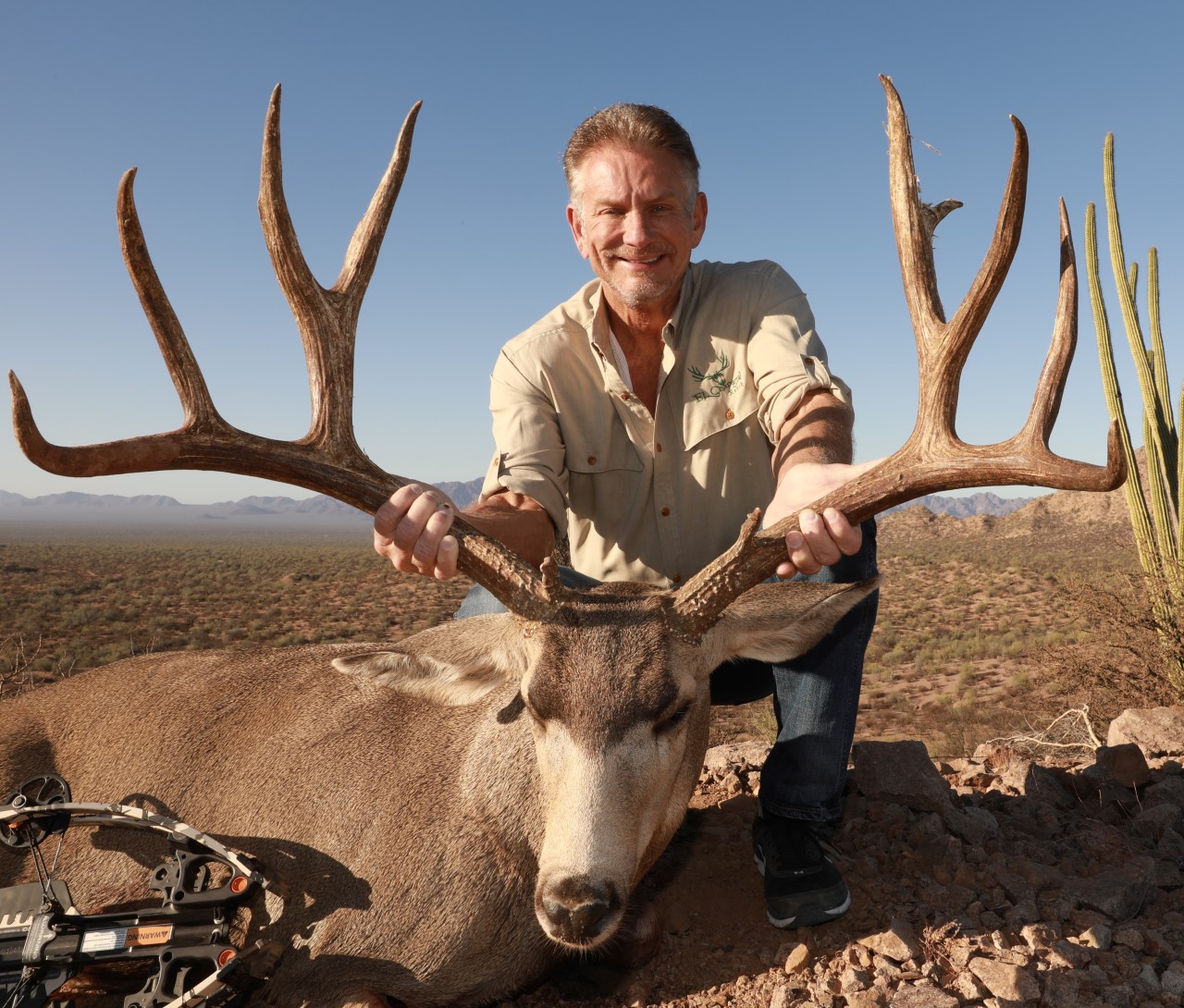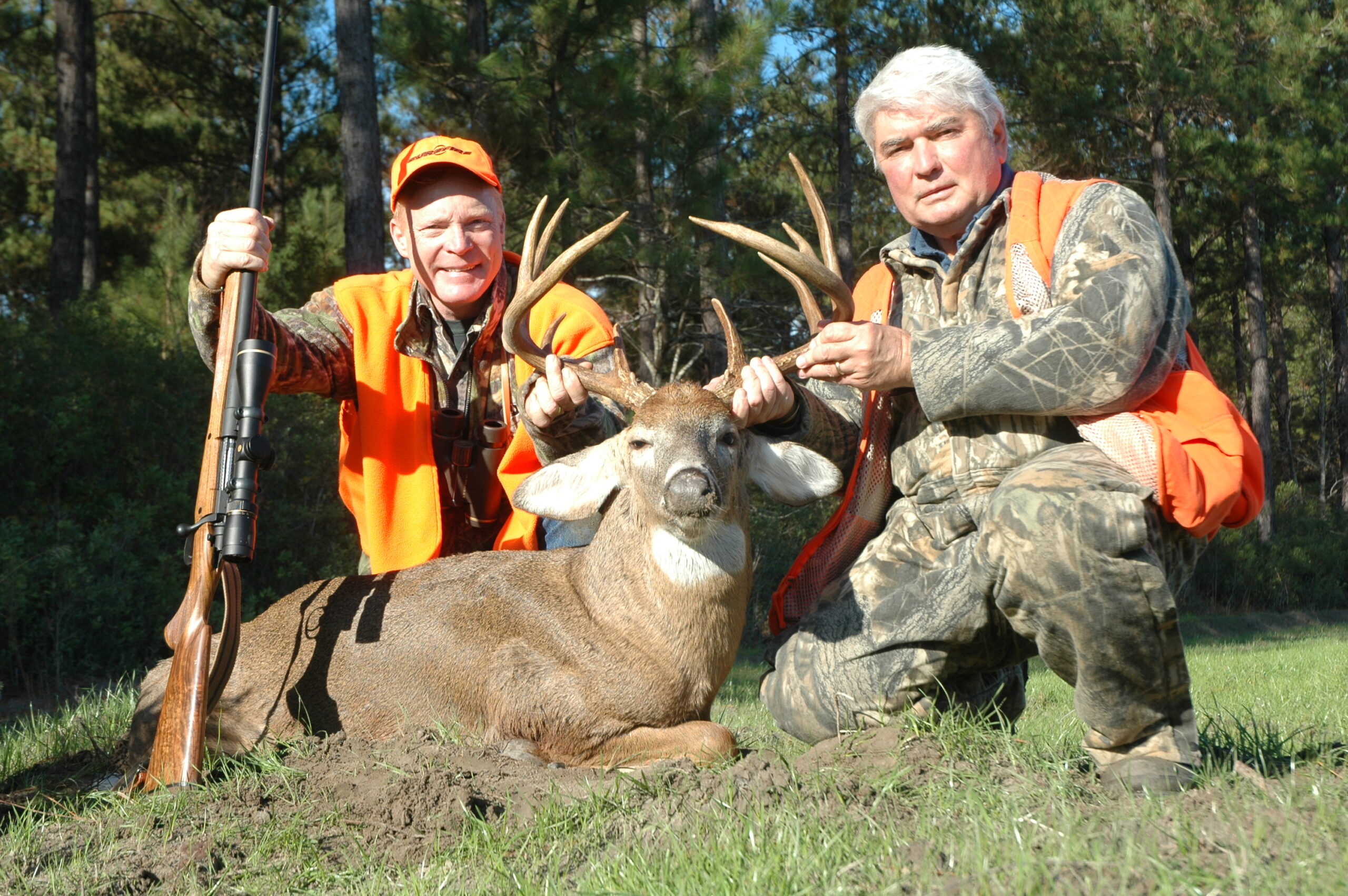Graham Williams tagged along when his friend, Colin, booked a dangerous game hunt for banteng and buffalo and a chain of events producing unintended consequences began. His first shots stopped a wounded banteng at eight yards that was charging Colin. “The bull almost cartwheeled over and the dust, the nerves, excitement and adrenaline I still recall today,” said Williams. “I was now hooked on big game hunting and big rifles.”
It was a defining event. He was captivated by the lifestyle and the challenge of the hunt motivated him to begin a career as a professional guide. In 1997, Williams established his own business, Outback Expeditions, which soon became Australian Buffalo Hunters. Commenting on his career choice, Williams says, “From day one, guiding International hunters for ethical and true wilderness big game hunts has been extremely rewarding, and provided great personal job satisfaction.”
Asiatic water buffalo is Williams’ specialty. For 21 years his team has operated in the vast wild country of Aboriginal-owned Arnhem Land in the Northern Territory. The old buffalo bulls weigh between 1,700 and 2,200 pounds, are very thick skinned, tough and sometimes get nasty.
“Every hunt is different,” explains Williams, “and we must not get complacent. A friend was smashed up last year in a charge by an unwounded and unprovoked buffalo. Luckily the client shot the buffalo off him. Glenn's only point-blank shot missed the brain, so an important part of my guides’ training is practicing under many hunting and charge scenarios. Our rifles, ammunition, familiarity, aim and trigger control must be perfect.”
Williams explains his philosophy about being a PH is “not just a guide going to work.” It is his life and his passion — dangerous game, big rifles and exploring. “I have guided on over 450 buffalo hunts, and love the excitement of getting up close on buffalo, learning the animals and every hunt is different,” he explains. “The remoteness is great. Sorry no telephone or emails, just focusing on the hunt and the wilds. I love the old-style safari camps, canvas and timber, the dust, the heat, the bush, the tall grass, the exhaustion, the evening meal cooking, nice red wines, a selection of smooth whiskeys, laughter in camp and the associated campfire stories.”
When afield, Williams has several rifle favorites. “What rifle do I carry?” he asks rhetorically. “Tricky question as I love owning a few bolt rifles. I occasionally swap between a London Guns Melbourne .500 Jeffery, a custom CZ in .435PH Express, a Rigby Big Game in .416 and a Hyem .404 Jeffery. All favorites and the last three under 10 pounds. The .500 Jeffery is always a favorite if I'm heading into thicker bush with clients using doubles. One of my first ever back up shots at a wounded buffalo was at 250 yards in heavy bush. The .416 Rigby Woodleigh FMJ solid dropped the bull at full speed in a cloud of dust, with a rear raking shot that went from left rump to brain, eight feet of penetration. That’s why many African hunters chose the .404 or .416 because of their penetration and longer ranging ability if required. I also carry a compact .44 Mag. with solids, a stunning Brown engraved Ruger, just in case my rifle was to jam or I am getting smashed.”
Many years of guiding produce a variety of experiences. “Obviously stopping a bunch of charges, a buffalo cart wheeling over in front of you or skidding to a halt in a pile of dust is incredible,” recalls Williams. “Seeing each hunter’s excitement of a successful hunt is a reward. Meeting with new and old hunting friends and others in the industry at the shows is a pleasure. Having two eras of Rigby company owners hunt with us was great. Seeing junior hunters who accompanied their fathers years ago, come visit at a hunt show, now as strong young men and young ladies is rewarding. Plus having a great team of guides and best friends, who share my same ethics and dedication.”
Australian Buffalo Hunters only offers big game, but helps hunters book various river, ocean or harbor fishing trips in the Northern Territory before or after their hunts. Darwin is a great small city to visit, surrounded by water, with friendly people and great foods.
Before becoming a professional hunter, Williams helped start South West Hunting and Conservation, a local hunting branch educating new hunters. Now he works with an Aboriginal company — a group of traditional owners who decided to manage their own land and resources — that provides income for the Aboriginal people.
Poaching is a problem, not by locals for food, but by new shooters who suddenly appear and offer cheap hunts when they are not yet NT Police Company licensed and have no Police Guide licenses. Guides and clients trespassing with firearms in unauthorized areas, and clients hunting without the compulsory Police International Visitors Firearms License also create problems.
Williams, an SCI member for more than 30 years, gained Life Membership for his membership drive efforts. He recommends all outfitters, agents and guides become members of SCI and IPHA; organizations that he says have long term dedication to the hunting business and personal hunting recreation.
Williams summarizes his professional career saying, “I thank my wife, Kerry, for her understanding of my crazy job, and the many hunters who have travelled to Australia to hunt with me and my team. Over the years this has helped me travel and hunt in Africa, New Zealand, Mid Asia, United States and European Union. My work and passion, is only possible because of the travelling International hunter.”





